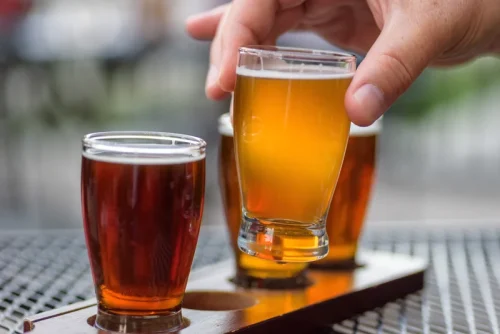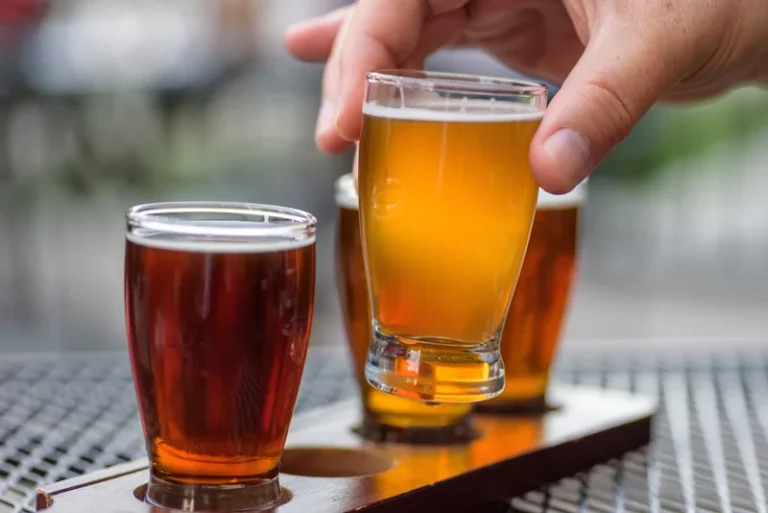
Tending to plants can be a metaphor for personal growth, teaching patience, responsibility, and the rewards of consistent effort. Plus, there’s nothing quite like the satisfaction of harvesting vegetables you’ve grown with your own hands. Acknowledge how far you’ve come in your recovery journey by discussing milestones and progress with your group. Whether it’s one week or one year of sobriety, every step is worth celebrating.
- CBT exercises in a group setting can be invaluable in relapse prevention.
- Those whose keys fit into the lock can sit together and discuss their challenges and offer insights into the recovery journey.
- A facilitator leads the group through a calming meditation, prompting them to imagine a place of peace or success in their recovery.
- In this experiential activity for group therapy, participants might create music, listen to meaningful songs, or discuss lyrics that resonate with their recovery journey.
Group Meditation
Cognitive-behavioral therapy (CBT) might sound intimidating, but who says it can’t be fun? Enter the world of thought challenge relay races and cognitive distortion bingo – where tackling negative thinking patterns becomes a team sport. And for those looking to blow off some steam, group fitness classes like boxing or dance provide a healthy outlet for pent-up emotions.

Understanding Emotions
Practicing forgiveness allows members to move forward with a clear mind. Recovery capital as prospective predictor of sustained recovery, life satisfaction, and stress among former poly-substance users. Financial planning might not sound like a barrel of laughs, but turn it into a game, and suddenly budgeting becomes bearable. Competitions to create the most effective spending plan or interactive simulations of real-life financial scenarios make money management engaging and relevant. Mock job interviews and resume building workshops prepare individuals for re-entering the workforce with confidence. It’s like a dress rehearsal for success, where feedback is constructive and mistakes are learning opportunities.
- Experiential activities for group therapy offer dynamic ways to engage individuals in addiction recovery, helping them process emotions, build connections, and foster personal growth.
- Participants are invited to share stories related to their addiction and recovery journey.
- They provide a safe environment in which members can practice newfound interpersonal skills and behaviors.
- The sense of accomplishment and camaraderie fostered through these experiences can boost self-esteem and motivation in people in recovery.
- By injecting a dose of enjoyment into the process, we’re not just sugar-coating the bitter pill of addiction; we’re creating an environment where healing can flourish organically.
- Each week, members share someone or something they’re grateful for, which can shift focus away from stress and reinforce optimism in recovery.
Learning Gratitude in Recovery
The ideas and activities for substance abuse group therapy that are used will have an impact on the benefits that our clients have. Group sessions provide group members with an opportunity to practice life skills including communication and establishing boundaries. Effective group leaders can help create an environment where members can challenge each other in a productive manner while practicing these life skills. Discuss how treatments for physical illnesses – like broken bones or infections – are similar to treatments for psychological illnesses like addiction.
- Beyond improving the health of the body, yoga focuses on calming and healing the mind.
- Group discussions on gratitude can help participants reflect on what they’re thankful for, even in tough times.
- Substance abuse group activities create a supportive environment that empowers individuals on their path to recovery.
- Guided imagery is a relaxation-focused experiential exercise for group therapy that helps participants visualize positive outcomes or safe spaces.

Recovery groups are crucial forums for people to access support, educate each other, and contribute to recovery. Such groups are usually involved in various activities that help to create a bond and advance recovery. Using activities can significantly facilitate the healing process by supplementing recovery groups with tools, insights, and a sense of community for the participants. These are five group activities that can be useful during the recovery process. Mutual-help groups are an excellent way to enhance your recovery process after or while receiving professional treatment.
Positive Affirmations And Compassion Box
The first person creates a simple beat, and the rest of the group follows suit, repeating the pattern and adding their embellishments. The next player repeats the pattern and adds something new, and the process continues until the individuals before them don’t repeat the pattern. The player who loses must try to distract the other players as they construct and pass on a new beat. The goal is to keep your attention focused on the rhythm and avoid being distracted by anything or anyone.

When coping with stressors, group members focus on building confidence and reducing troublesome stress without judging themselves for their feelings. Whether you meet once a day or several times a week, expressive writing as a group will surely boost everybody’s mood. Group members can later challenge their anxious thoughts by living in the moment, remembering to pay attention to the present, and learning how to stay present.
Trauma and Substance Abuse

Lock and key activities can be fun to break the ice and allow peers to connect and share their experiences. Group therapy is a common approach used in the treatment of substance use disorders. activities for recovery groups With a plethora of research supporting its effectiveness, Counselors can effectively use this form of treatment within an addiction treatment program to support their clients.

